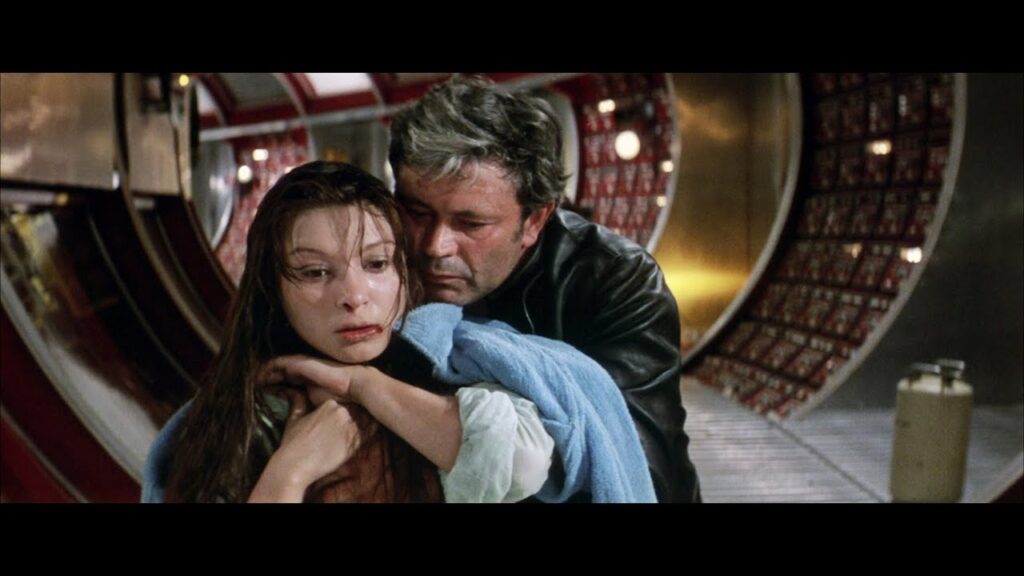Andrei Tarkovsky’s classic film Solaris is a science fiction film but mostly raises questions about human existence and consciousness. Tarkovsky was never interested in space exploration or research. Using the science fiction setup, he tried to portray human memories, emotional depth, and the language of love. More than the alien world, he was interested to capture the human existential crisis in space. So, Solaris is not just a science fiction film, but a film that acts as a mirror to mankind. The film raises multiple important questions – what makes a human? What is the true nature of human love? How are humans in space detached from reality? Can logic supersede human emotions? Tarkovsky only raises very important questions, however, does not provide the viewers with any direct answers. Ultimately, everything reduces to the point of humanity and the human soul. Through Solaris, Tarkovsky largely hails and celebrates life on Earth and questions the repercussion of scientific advancements in space research. No matter how much scientific progress we make, he despises artificial, mechanical, and robotic forms of life.
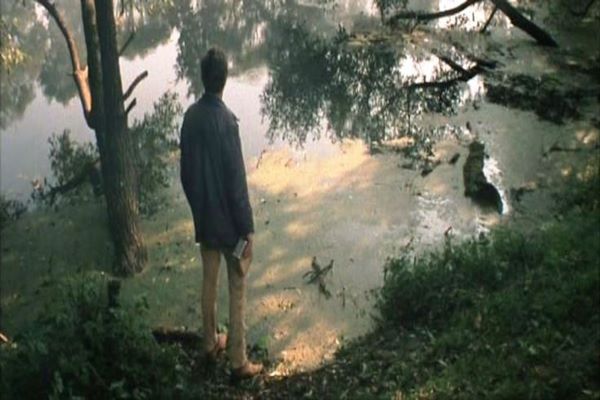
The film starts with a psychologist named Kris Kelvin (Donatas Banionis) who has been appointed to visit the oceanic planet Solaris, study the behaviors of the remaining 3 cosmonauts, and decide whether the decades-old space station should be allowed to continue operations or decommissioned. Kris’ house is situated in beautiful countryside surrounded by trees, ponds, and birds under the open and clear blue sky. Before leaving for Solaris, he spends the last day on Earth with his elderly father (Nikolai Grinko) and a retired cosmonaut Burton (Vladislav Dvorzhetsky). Earlier, Burton was part of a Solaris exploration team but recalled when he reported strange incidents on the oceanic planet including a four-meter-tall child on the surface of it. However, his reports were dismissed by a panel of scientists as mere hallucinations. Surprisingly, those remaining scientists are sending the same strange messages. So, Kris has been commissioned to study their behaviors and psyche.
Kris boards a spaceship and reaches Solaris. When he reaches there, two remaining scientists named Dr. Snaut (Juri Jarvet, voice – Vladimir Tatosov) and Dr. Sartorius (Anatoly Solonitsyn) don’t greet him. He finds the scientific research center in a bizarre unorganized condition. He comes to know that the other scientist, his friend, Dr. Gibarian (Sos Sargsyan) has committed suicide. When Kris enters Dr. Gibarian’s room, he finds out that Gibarian has left a video message for him in which he has mentioned his hopelessness and the strange happenings at the research station. Kris sees two strangers at the station who were not part of the original crew. While sleeping in his room, he is utterly astonished to see his late wife Hari (Natalya Bondarchuk), who died ten years back, sitting on a chair. Snaut explains to him that the “Visitors” or “Guests” have started appearing at the research station since strong X-ray radiations were projected on the oceanic surface of Solaris in order to understand its nature and make a contact with it. However, the planet has responded to it in a different way by creating “Guests” from their memories of them. Kris makes the replica of Hari board a rocket and launches it into outer space.
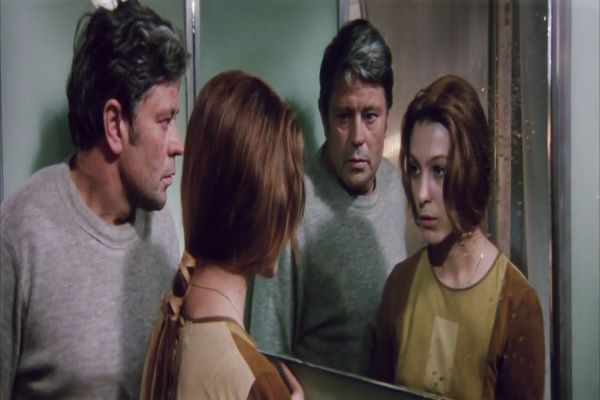
The second replica of Hari reappears in the evening. This time, Kris accepts her calmly, and then embraces and kisses her. They fall asleep together that night. She gets panicked when Kris leaves her alone for some time, and she comes out of the room breaking the wall and injuring herself. However, even before the first aid, her wounds are healed automatically. Snaut and Sartorius explain to Kris that Solaris has created Hari out of his memories of her and she is not a human, even though she behaves like a human. Sartorius suggests a device called “The Annihilator” to destroy the “Visitors”. Snaut suggests the encephalogram process that will project Kris’ brainwave onto the surface of Solaris so that it understands humans and stops making apparitions.
Over time, Hari has become more human and now can exist without Kris’ presence. At Snaut’s birthday party, Sartorius reminds her that she is not a human. Devastated Hari tries to commit suicide by drinking liquid oxygen, but recovers painfully a little later. Kris becomes ill and dreams of his late mother in his sleep. By the time he awakes, Hari is no more there. Snaut reads her farewell note in which she appealed to both the scientists to destroy her. He also informs Kris that the “Visitors” have stopped appearing and the islands have started forming on the planet’s surface since Kris’ brainwave was projected onto the oceanic surface of Solaris. Snaut advises Kris to return to Earth. Kris contemplates whether he should return or stay back to witness some other miracles. In the last scene, Kris appears to be back on Earth in the countryside with his father. However, it is slowly revealed to be an island formed on the surface of Solaris.
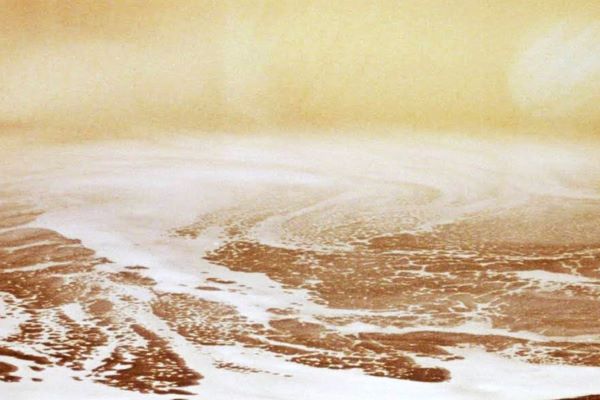
Tarkovsky was never a big fan of heartless scientific inventions at the cost of not only human but any animal life. Burton strongly objects to Kris’ suggestion to bombard the oceanic surface of Solaris with radiation. He says that we should not destroy something which is incomprehensible, and knowledge is valid only when it is based on morality. Kris rightly points out that man exploits science keeping aside moral values. Hiroshima is an infamous and traumatic example of that. Tarkovsky’s distaste for science is also reflected when Sartorius tells Kris, who is collecting Hari’s blood sample, that these examples are much more humane than experimenting on rabbits. The same opinion is reflected in Kris’ father’s words to Burton that he does not like innovation and his house has been built the same as his grandfather’s house. When Sartorius wants to celebrate Snaut’s bravery and devotion to the duty of scientific research, Snaut argues, ” Science? Nonsense. In this situation, mediocrity and genius are equally useless. We have no interest in conquering any cosmos. We want to extend the earth to the border of the cosmos. We don’t know what to do with other worlds. We don’t need other worlds. We need a mirror. We struggle for contact, but we will never find it. We are in the foolish human predicament of striving for a goal that he fears, that he has no need for. Man needs a man.” Even though Hari herself mentioned in a short note that she contemplated suicide, ultimately, it is the science that kills Hari with the annihilator using the burst of light and wind.
Solaris features Tarkovsky’s signature styles like slow and subtle camera movement, long takes, wide-angle long shots, usage of rain, water, and horse, and magnificent views of nature. His vision is beautifully portrayed by Vadim Yusov’s magnificent cinematography. Tarkovsky’s reluctance toward city life is highlighted when Burton’s five-minute chaotic driving scene in the city is suddenly cut to the serene natural beauty of Kris’ countryside. He uses Johann Sebastian Bach’s soothing and melancholy music for the countryside scenes, but Eduard Artemyev’s terrifying electronic music for the space scenes. The same emotion is reflected in the romantic scene when the space station loses gravity, Kris and Hari are floating and embracing each other, and Bach’s music is playing in the background. Then, it is cut to Kris’ childhood in the tranquil countryside. After that, it slowly dissolves into the terrifying view of Solaris and haunting electronic sound. In multiple ways, Tarkovsky differentiates the beautiful life from the artificial one. If Kubrick’s 2001: A Space Odyssey is about the progress of science, then Tarkovsky’s Solaris is the celebration of life on Earth.
Tarkovsky always despised the artificial form of life. When Sartorius refers to Gibarian as a coward, Kris objects to that and says that his courage is inhuman and he and Snaut will never understand the earthly pleasures and basic human emotions as they are in illusion amidst the mechanical form of life. Gibarian was not a coward, but hopeless of his inability to save mankind. Over time, artificiality has engulfed humanity. Snaut reads a book that states mankind has lost the ability to sleep. Tarkovsky points out Sartorius’ mechanical mentality when he tells Kris that all the heartbreaking lamentations are nothing but second-rate Dostoyevsky. A man was created by nature so that he could learn her ways. In his endless search for the truth, he is condemned to knowledge. Everything else is a whim.
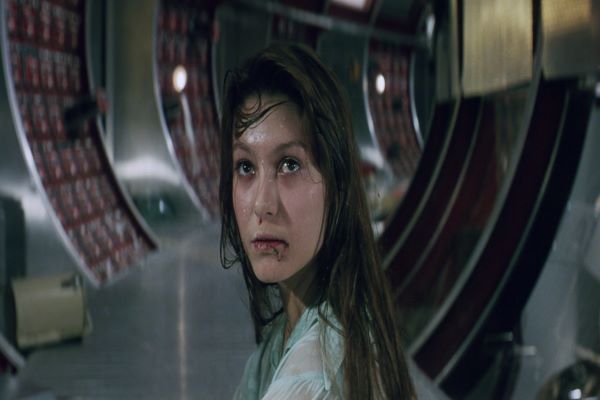
Science cannot wipe out our past life and memories. As humans, we will always be beckoned by our past life. That Solaris is creating the replicas of humans based on our memories is a metaphor that no matter how much logical we are or advanced in science, basic human emotions like love, past life, memories, and relationships cannot be erased from our life. We will deeply long for those. Hari’s disappearance shows how deeply and desperately we need them in life.
Above all, Solaris is all about the celebration of life on Earth. Tarkovsky shows that the colors and vigor of life are eternal and can never be forgotten even if humans cross the boundaries of earth and reaches some other planets. Gibarian missed earth deeply and made a paper strip and attached that to the air ventilators. Snaut still uses it and Sartorius, though he initially mocked, uses it hidden.
Solaris is also Tarkovsky’s ode to love. It does not disappear even when humans travel to a different planet. Love forms humans and humans are made up of love. When Sartorius and Snaut remind Kris that Hari is not real and merely a reproduction, Kris does not care whether she is original or an artificial replica. What matters is that Kris loves her deeply and he does not mind staying back in the space station. Above all, he wants to live with Hari at any cost. Sartorius and Snaut can’t feel it as they have become mechanical and forgotten the purity of love. Later on, Snaut admits to Kris that he has really lost heart and humans are losing dignity and character. When Kris tells him that he is a good man but looks awful, he sarcastically asks him, “Doesn’t a man who is ready to give up his life just to make cursed contact in order to know more about it have the right to get drunk?” He further says, “We have lost our sense of the cosmic. The ancients understood it perfectly. They never would have asked why or what for.”
Through the last conversation between Snaut and Kris, Tarkovsky shows that humans mostly live in an illusion during their lifetime. They do not really grasp the true meaning of life. Kris asks Snaut, “Having spent so many years in the space station, do you still feel a clear connection to your life down there?” Snaut replies, “When a man is happy, the meaning of life and other eternal themes rarely interest him. These questions should be asked at the end of one’s life.” Kris continues, “But we don’t know when life will end. That’s why we are in such a hurry.” Snaut replies, “Don’t rush. Happiest people are those who are not interested in these cursed questions.” Kris says, “To ask is always the desire to know. Yet, the preservation of simple human truths requires mystery. The mysteries of happiness, death, and love.” Snaut tells him, “Maybe you are right, but try not to think about all that now. To think about it is to know the day of one’s death. Not knowing that day makes us practically immortal.”
In the end, Kris does not really harbor the hope that Hari will return. But then, why should he keep staying in the space station? New miracles? Snaut tells him to return to earth, for which he smiles, however, the final scene shows him on an island exactly like his countryside on the planet Solaris.
